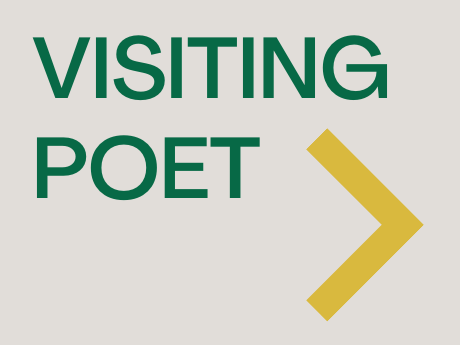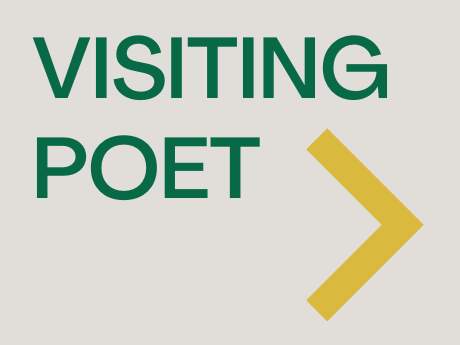Visiting Poet
Visiting Poet: Forrest Gander on Coral Bracho

Four Poems
(Observations)
That bird,
dropping down to peck the asphalt
so close to her foot, is something
she’s never encountered before.
There’s nothing to compare it with;
nothing that links it to that cat,
nothing it shares
with that bush.
They’re all unanticipated tenants;
convincing presences
in a space that, for the moment,
we share with them. There aren’t kingdoms
that harbor them or separate them out
into their particular territories,
no words
that link them together. This thing here,
fluttering its wings now
and hopping between the grass and the dust,
it has no likeness.
(Intuitions)
Which thread is the one that tells our story
and lends us substance
when there’s no trajectory
by which to make sense of ourselves?
Which thread are we sure is vital?
The one that, maybe, ties together the handful of gestures
that comprise us; so we feel
we still have control. Gestures
that we repeat as certainties; that delineate
those certainties which once shaped us
and which now delimit
and nail us
to our shadows. Certainties
whose meaning and origin we don’t know,
but which nevertheless enclose
and protect us, like dive helmets
or grilles;
which still let us look through them
into the world:
that disquieting, incomprehensible
strangeness.
(Intuitions)
The attributes, the sounds of the words
simply go,
though the meanings remain there,
in stillness,
turning toward that opaque box
where they’re concealed: where one might be plucked,
and a little color squeezed out for us,
some flash.
But those depths where they’re hidden, interned,
get increasingly darker,
and they themselves more fleeting, uncertain.
Inside the box,
they laugh
and make provocations. But in other accents,
other voices that they invent.
(Observations)
When the hinges
that articulate the world
snap apart; when their pieces
uncouple and isolate; and their outlines,
their frames shatter,
disintegrating— how
and where are we then?
How do we account for stupor and palpable
emptiness; brilliance
and these clear signs
of vacuity, of abandonment? Presence
and the nothing that is spoken,
that can be named.
Translated from the Spanish by Forrest Gander
Coral Bracho, translated by Forrest Gander, from IT MUST BE A MISUNDERSTANDING, copyright © 2021, 2022 by Coral Bracho, translation copyright © 2021, 2022 by Forrest Gander. Reprinted by permission of New Directions Publishing Corp.
In this new series, we introduce readers to poets from around the world through a selection of poems and a brief essay on their life and work.
Forrest Gander on Coral Bracho
I’ll never forget reading a passage written by Bruno Schulz in which his protagonist, a child named Joseph, is stalked and trapped against a hedgerow by a howling, vicious, black dog that Joseph realizes, at the last second, is not a dog at all but, he explains, just a “man, whom, by a simplifying metaphoric wholesale error, I had taken for a dog.”
Such dream logics are at work all through Coral Bracho’s most personal and emotionally expressive collection of poems, It Must Be a Misunderstanding, dedicated to her mother who died of complications from Alzheimer’s. But instead of Schulz’s characteristic atmosphere of anxiety and terror, Bracho finds tenderness, humor, grace, and even a kind of bravery in the interactions of personalities who encounter each other in a “Memory Care” facility, which Bracho compares to a “kindergarten or asylum or abstract space.” In the parallel worlds of the residents, a wall might be perceived as the stiff suit of a man, shadows might be taken for realities, light might be apprehended as traces of motion, quiet is strafed with fragments of voices, and everything exists and doesn’t exist at the same time.
I chose to translate this whole book rather than another selected volume because, although composed of individual poems, It Must Be a Misunderstanding is really a deeply affecting book-length work whose force builds as the poems cycle through their sequences. The “plot” follows a general trajectory — from early to late Alzheimer’s— with non-judgmental affection and compassionate watchfulness. We come to know an opinionated, demonstrative elderly woman whose resilience, in the face of her dehiscent memory, becomes most clear in her adaptive strategies. The poems involve us in the mind’s bafflement and wonder, in its creative quick-change adjustments, and in the emotional drama that draws us across the widening linguistic gaps that reroute communication.
One of the things I most admire about Coral Bracho’s work is how her style changes from book to book. There are, to be sure, consistent elements. For instance, in all of her work, sensual, sometimes erotic particulars punctuate conceptual inquiries concerning space and time, memory and the interrelation of self and environment. To wit: she constantly interrogates the perceiving consciousness. But she has retooled her lexical and syntactical palette repeatedly since the publication of the early books that made her internationally famous and gave her a reputation as a neo-baroque poet. She didn’t want to get stuck in her early style. She didn’t want to merely repeat her successes. Instead, she resolutely insisted on expanding her repertoire of techniques and approaches to the poem. She was, you might say, more like Bob Dylan than John Ashbery in this respect. For a while, she stripped out the rich, lusciously musical qualities of the early books. She explored more subtle, restrained phrasings. She collaborated with artists. She wrote phenomenological poems about the space of a room, about the town Marfa, Texas. The diction of her poems shifted from the ecstatically ornate—
Agua de medusas,
agua láctea, sinuosa,
agua de bordes lúbricos; espesura vidriante—Delicuescencia
entre contornos deleitosos. Agua—agua suntuosa
de involución, de languidez…
[Water of jellyfish,
lacteal, sinuous water,
water of lubricious borders; glassy thickness—Deliquescence
in delectable contours. Water—sumptuous water
of involution, of languor…]
—to the gnomic, clipped declarations of
…La piedra
que va a caer
cambia el pozo
y el agua
que inexorablemente, en su ascenso,
la alteran.
Todos entran al cuarto
todos lo observan.
[…The rock
about to fall
alters the well
and the water
that inexorably, as it drops,
alters it.
Everyone enters the room,
Everyone takes it in.]
In the recent It Must Be a Misunderstanding, Bracho is still exploring the perceiving consciousness; not only her own, but her elderly mother’s as well. Readers navigate shifting points of view. Now we are inside the head of someone losing their memory. Now we are observing from a distance. Now we are overhearing conversations within a room or within a mind.
Here is one of Bracho’s philosophical, serial “Observations” of her mother’s mental state:
The puzzle pieces
get lost but not the look
she knows to be hers.
The forms, the objects, they merge,
they crumble; but a feeling
for the ensemble remains: between moments,
between fictions,
despite constant fractures. Like a threshold,
a hand hold.
And here is a portrait of Bracho’s mother as revealed in her creatively evasive conversation with her doctor.
(Alzheimer’s. Follow-up)
Who is the President of this country?
—Well, it depends; for some
it’s one person; for others it’s someone else.
What is this called?
— I don't know, doctor, because I don't use
that; only you do.
How many children do you have?
— Quite a few.
What did you used to do?
—Now you're going to ask me
to draw a clock.
Did you like to dance?
— Yes, of course, of course I danced.
And did you ever travel?
—Yes, naturally.
Where to?
— Well, to the same place everyone went.

Coral Bracho was born in Mexico City in 1951. She is the author of several books of poems including It Must Be a Misunderstanding (2022) and Firefly under the Tongue: Selected Poems (2008), both translated by Forrest Gander. Among her awards are the 2004 Xavier Villaurrutia Prize, the 2011 Premio Internacional de Poesía Jaime Sabines-Gatien Lapointe, and the 2016 Premio Poetas del Mundo Latino Víctor Sandoval.
Forrest Gander is the author of numerous books of poetry, translation, fiction, and essays. A U.S. Artists Rockefeller fellow, Gander has been a recipient of grants from the NEA, the Guggenheim, Howard, Witter Bynner and Whiting foundations. His 2011 collection Core Samples from the World was a National Book Critics Circle Award and Pulitzer Prize finalist for poetry, and his 2018 collection Be With won the Pulitzer Prize for poetry.

